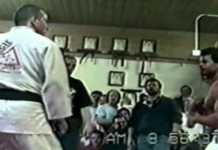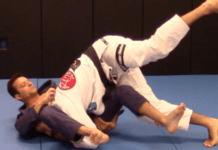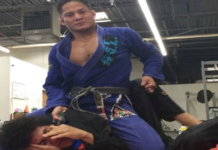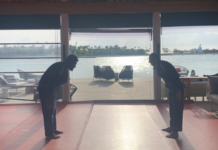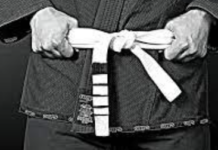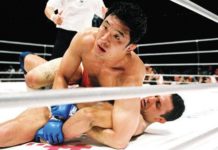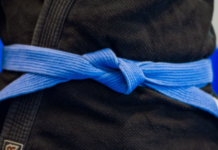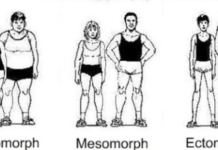When you do a more intense workout than usual or an exercise that you haven’t done for a long time… these are situations that may involve a more intense use of the muscles, leaving them sore for about three days. The question is how to recover from intense training? How to improve my post-workout recovery process?
The process of muscle growth begins the moment you finish your workout. Your muscles start to recover and develop during the post-workout period. Something that many people end up doing wrong is that they forget that post-workout recovery is essential. Your performance will never be as good as it could be if you do not take care of the regeneration of your body.
If you often arrive full of energy to your BJJ practice, you do your best during your training, leave the tatami feeling good and then the next day you can barely move… well, then this article might be the one for you. Here are some tips on how to take care of your sore muscles and effectively recover after your BJJ practices.
Post-workout recovery: effective ways to recover after BJJ
-
Stretching your muscles
Stretching after training can really speed up the recovery process. Contrary to what many people think, it is not silly to stretch your body before and after a workout. Stretching helps to relieve muscle aches caused by physical activity, to relax muscles and to reduce tension.
In addition, stretching is able to promote the irrigation of the blood vessels in the region that has been worked, which increases the reception of nutrients and ends up speeding up the recovery process. Therefore, it is important not to forget this step, both before and after a BJJ training. This will help improve your performance, prevent injuries and even increase the range of movements you’ll be able to do when working out or even day-to-day activities.
-
Eat the right food
What to eat after an intense workout that will help you recover, reconstruct and gain muscle mass? One of the golden rules is to consume some carbohydrate source after exercise. This is necessary in order to replace the energy expended, without the making body use the muscle mass for it. Ingesting protein-based food will also help during post-workout recovery since it will help restore muscle fibers. So, up to one hour after you’ve finished training, eat a meal that’s rich in protein and carbohydrates. For more specific info regarding the dosage and best post-training recovery meal, that’s adapted to you and your training routine, always consult a nutritionist.
-
Supplementation
Supplements can be a great ally for anyone who practices exercise. In regard to post-workout recovery, protein and carbohydrates are known to help in muscle growth and recovery of muscle fibers damaged by training. But in addition to these, there are other supplements that accelerate the process and contribute to the decrease of post-workout fatigue.
For example, taking BCAAs before and after workouts reduces muscle breakdown and accelerates recovery by repairing muscle fibers. Magnesium helps to relieve muscle aches and promotes muscle recovery. Creatine helps to increase strength and to reduce the damage and inflammation caused by exercise.
-
Drink water
It is essential to keep the body hydrated so that it works in the best possible way, managing to transport the nutrients and to eliminate all unnecessary waste. Also, because during physical exercise your body tends to lose a lot of water through sweat, it is necessary to replace this loss to avoid dehydration.
Drinking the right amount of water is one of the best measures to help the body recover from an intense workout. Water is essential for the correct functioning of the body’s metabolism and for the regeneration of new cells and tissues to replace those that are damaged. Therefore, try to drink 2 to 3 liters of water on a daily basis, in order to facilitate muscle recovery. Also, if you can, keep a water bottle near the tatami so you can drink it during your BJJ practice. It will help to slow fatigue, to prevent cramps and to increase blood flow.
-
Take time to rest
Life should not be only training. The same way that dedication is important, resting is also indispensable for you to achieve your best performance. Resting between trainings is sometimes not respected as it should. However, it plays a crucial role in the process of repairing and building muscle. It is during the resting periods between workouts that your body recovers and that your muscles repair and grow. Training too often and not resting properly can lead to unnecessary muscle injuries. Therefore, it is advised to rest between 24 to 72 hours between your BJJ workouts, depending on their intensity and on how your body’s feeling.
Also, never forget your beauty sleep. It is known that lack of sleep decreases tolerance to high-intensity workouts, promotes fatigue, and negatively affects the physiological mechanisms responsible for adaptation to training. Lack of sleep can lead to an increase in stress and can negatively influence your performance in BJJ training. If you do not sleep enough hours you are likely to feel more tired and less focused on your goals. A minimum of 8 hours of sleep is essential for your body to regenerate the damage caused by the energy you spent on top of the tatami.
-
Massaging the affected area
Muscle massage is a good way to recover from workouts and prevent injuries. Massaging helps to relieve muscle tension, to undo knots, to increase blood circulation and to reduce inflammation. Going to a good massagist is a good way to promote relaxation of muscles and to activate blood circulation; a professional, with the correct techniques, is able to undo the tension points and relieve that sore sensation. Alternatively, you can always use a foam roller. After your BJJ practice, get the foam roller and spend 5 to 10 minutes massaging the muscle groups that you worked on.
-
Move and stretch the next day
First, understand that this is a natural process of the body. Feeling sore is something we cannot stop, only soften it. The next day, to accelerate your recovery, move your body and stretch lightly. Don’t spend it laying on the couch and complaining. Exercise lightly and do activities such as walking and stretching. This will promote blood flow, facilitating the repair of injured tissues.
So now you know how to recover from an intense workout with little effort and to improve your BJJ performance. Although it is difficult to avoid the sore pain after an intense training, it is possible to create strategies to make it less intense. Neglecting factors such as resting, stretching, drinking enough water and eating right can compromise muscle recovery, lead to injury and reduce mass gain. Lastly, if you are about to change your habits to improve your post-workout recovery, take it easy. If you try all these alternatives at once, you will not know what works best for you. So, get to know yourself and what works best for you.
Now that you know how to recover from a BJJ workout with little effort, you no longer have an excuse to stop training because of muscle pain. If the pain persists for more than a week, consult a nutritionist or physician to check for nutritional deficiencies and assess the need for possible vitamin supplementation.
Check also:
- BJJ Diet: What should you eat to win?
- Strеtсhing techniques in BJJ & the importance of flexibility
- 5 Essential BJJ Post Workout Stretches



